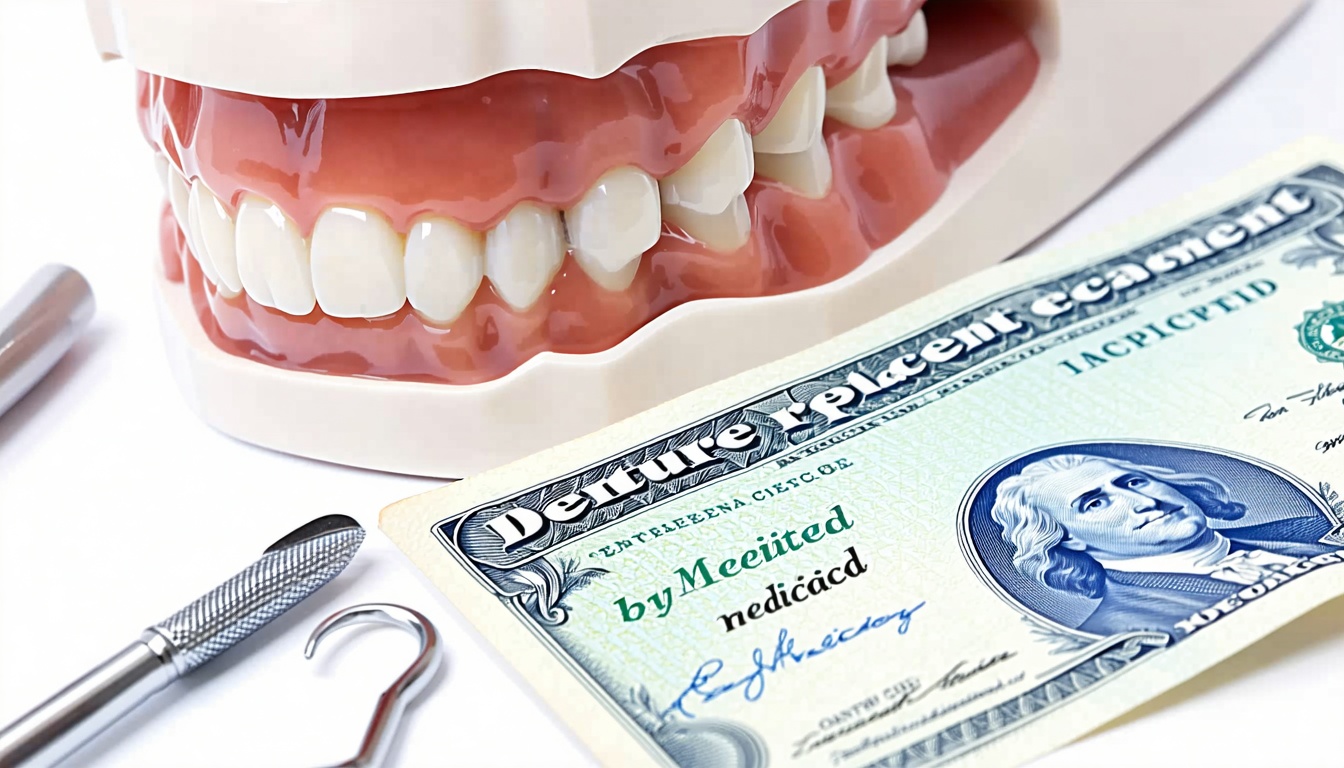
If you’re exploring options for denture replacement accepted by Medicaid, you’re not alone. Many adults and seniors in the Charlotte area face gum disease, bone loss, or missing teeth, and may rely on public programs to cover prosthetic services. Understanding how Medicaid treats denture fabrication, relines, repairs, and related procedures can help you restore your smile and oral function without excessive out-of-pocket cost.
Medicaid coverage for dentures varies significantly by state, with some programs offering comprehensive dental benefits and others limiting services to emergency care only (Access Dental). States set their own adult dental benefits and there are no federal minimum requirements for prosthetic coverage under Medicaid (Medicaid.gov). The Centers for Medicare & Medicaid Services has encouraged states to broaden adult dental coverage as part of the Oral Health Initiative, aiming to improve access, quality, and outcomes across the lifespan (Medicaid.gov).
Overall, navigating denture benefits under Medicaid requires understanding eligibility rules, covered services, and state-level variations. This guide will walk you through each step, from verifying your eligibility to finding a Medicaid-approved provider and maximizing your benefits.
Many Medicaid programs include denture services, but covered procedures differ by state. To determine whether your plan covers new dentures or repairs, start by reviewing your state’s adult dental policy or calling your local Medicaid office.
Common prosthetic services that may be covered include:
Exact benefits vary. For instance, some states cap the number of relines per year or require prior authorization for immediate prosthetics.
You’ll typically need to show that dentures are medically necessary. Documentation may include:
This process ensures Medicaid funds are used appropriately, focusing on restoring oral health and function.
Since adult dental benefits are optional for states, coverage for denture services can range from comprehensive to strictly emergency-only.
| Coverage level | Description |
|---|---|
| Comprehensive | Includes new dentures, relines, repairs, and adjustments |
| Limited prosthetics | Covers only basic fabrication (full or partial) |
| Repair only | Restricts benefits to emergency repairs and relines |
| No coverage | Adult denture services not offered |
North Carolina Medicaid provides limited adult dental services. Some counties offer additional coverage through Health Choice for Children or special adult dental waivers. To verify current programs, contact the North Carolina Medicaid office or visit their website.
States like New York and California tend to offer more robust prosthetic benefits, while others may require a pilot program or waiver for adult denture services.
Choosing the right prosthetic depends on your clinical needs, budget, and coverage limits.
Full dentures replace an entire arch of missing teeth. They are the most common Medicaid-approved prosthetic.
Pros:
Cons:
Learn more about full-arch coverage in our guide on full dentures covered by Medicaid.
Partial dentures fill gaps when some natural teeth remain.
Pros:
Cons:
For combined prosthetic solutions, see partials and full dentures covered by insurance.
Implant-retained prosthetics anchor dentures to titanium posts.
Pros:
Cons:
If you’re exploring implant options, review implant dentures with insurance coverage for potential programs.
Even with Medicaid, you may face copays or uncovered fees. Budgeting ahead ensures you avoid surprises.
| Service | Typical fee range | Medicaid contribution | Estimated your cost |
|---|---|---|---|
| Full upper denture | $800–$1,200 | 60–80% | $160–$480 |
| Full lower denture | $800–$1,200 | 60–80% | $160–$480 |
| Reline (per arch) | $150–$300 | 50–70% | $45–$150 |
| Emergency repair | $100–$200 | 60–80% | $20–$80 |
These numbers vary by state and provider. Always ask for a fee schedule and verify copay obligations before treatment.
Finding a dentist who accepts Medicaid for denture services is crucial. Not all practices offer prosthetic care under the program.
If you need advanced periodontal care before dentures, look for a periodontist that accepts Medicaid or begin with a Medicaid dentist for gum infections.
Proper preparation streamlines the denture process and minimizes delays.
Bring any questions to your dental appointments to ensure you understand each phase.
You can stretch your Medicaid dollars by coordinating plans and obtaining approvals.
If you have secondary dental insurance or Medicare Advantage with dental riders, those plans may cover services Medicaid does not. Ask your dentist to bill primary coverage first, then submit remaining charges to Medicaid.
Confirming coverage in advance reduces claim denials and unexpected bills.
If your state’s Medicaid program offers limited prosthetic benefits, explore other low-cost options.
Federally qualified health centers often provide dental services on a fee-adjusted basis based on income. Call local community health centers to inquire about denture programs.
University-affiliated dental schools supervise students providing treatment at reduced rates. While appointments take longer, fees can be a fraction of private practice rates.
For procedures beyond your coverage, check dental bone graft and gum disease coverage to see if you qualify for related services.
After you receive your new prosthetics, proper care will extend their lifespan and keep your mouth healthy.
Plan biannual visits to assess fit and oral tissues. Early detection of sore spots or bone changes can prevent major adjustments.
You’ve learned how denture benefits under Medicaid work. Now take action to restore your smile.
Reach out to your state’s Medicaid customer service for plan specifics and provider referrals.
By understanding your eligibility, finding the right provider, and maximizing available benefits, you can secure quality denture prosthetics under Medicaid. Take the next step today by scheduling a consultation with a Medicaid-participating dentist and reclaiming the confidence that comes with a healthy, complete smile.


